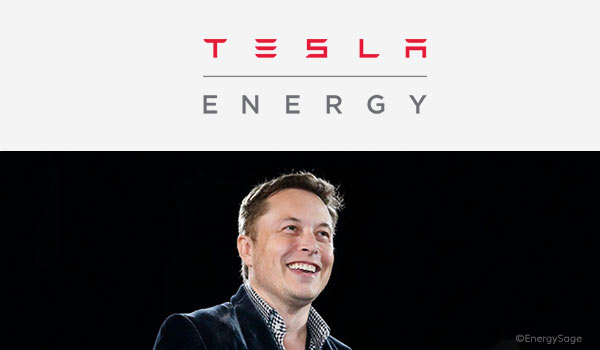(Article is from Austin Business Journal, copyright belongs to owner)
Electric vehicle and battery energy storage company Tesla Inc. is seeking a new foothold in the power space: providing retail electricity to Texans.
A newly minted subsidiary dubbed Tesla Energy Ventures LLC filed an application on Aug. 16 for a Retail Electric Provider certificate from the Texas Public Utilities Commission, according to the agency’s website.
Among 120 other REPs selling power to Texas consumers, Tesla Energy Ventures could stand out through its potential to offer electrons from less traditional sources, sources told Texas Monthly. Examples include the company’s solar panels, huge energy storage projects under development, and smaller home batteries it already sells as distributed energy resources.
Tesla Energy Ventures applied to supply retail power to customers within the Electric Reliability Council of Texas’ territory, which includes the entire state except some counties in East Texas, the Panhandle and the El Paso area.
If Tesla jumps into the power-selling business, it could be yet another industry-disrupting move coming from the companies under billionaire Elon Musk‘s control. From Austin, alone, his tunneling business The Boring Company reportedly has big plans throughout the state, his brain-implant startup Neuralink Corp. is ramping up locally, and of course the forthcoming Texas Gigafactory just east of Austin will soon be cranking out electric tractor trailers and Cybertrucks among its more traditional vehicles. On top of that, Musk announced earlier this summer that Austin will be home to its first “Tesla Solar” neighborhood.
For the new Tesla Energy Ventures, two utility-scale batteries that Tesla (Nasdaq: TSLA) is planning outside Houston and Austin will be affiliated with the electricity provider, according to the application.
In March, news surfaced that Tesla subsidiary Gambit Energy Storage LLC was constructing a 100-megawatt energy storage project in Angleton, about 40 miles south of Houston in Brazoria County. The battery was expected to begin operating by June 1, but it’s unclear whether that happened.
Tesla’s acquisition of the Gambit storage site came to light in the wake of the February winter storm that paralyzed Texas’ electric grid, which was minutes away from requiring what’s known as a black start. Documents filed by Gambit’s former owner, Plus Power LLC, noted that the project could provide a black start service to help the grid come back online after going black.
Another subsidiary — Giga Texas Energy LLC — is slated to build a huge battery on Tesla’s vast property in Travis County, where the company is rapidly completing a gigafactory. Tesla Energy Ventures’ office will also be part of the Austin-area complex, according to the REP certificate application.
Utility-scale battery storage is also useful for increasing the Texas grid’s reliability amid growing renewable energy capacities, economist Garrett Golding of the Federal Reserve Bank of Dallas wrote in a recent blog post.
“The grid is increasingly reliant on intermittent renewable generation as questions arise about how much thermal capacity is actually available to cover unexpected shortfalls—all while electricity demand increases,” Golding said.
The electricity company is helmed by President Ana Stewart, who has directed Tesla’s regulatory credit trading from the Austin office since 2017. Stewart has worked with ERCOT in her position at Tesla and earlier in the decade as an analyst at Direct Energy in Houston.
Tesla Energy Ventures is working on a scheduling agreement with Houston-based Engie Energy Marketing NA Inc. in Houston, according to the application.
The PUC will most likely approve or deny the application by Nov. 15, which is 90 days after Tesla Energy Ventures filed, according to an agency document.
Tesla Energy Venture’s application comes after multiple companies in the electricity sector filed for bankruptcy protection following the winter storms in February. Entrust Energy Inc., for instance, filed for Chapter 11 protections on March 30. Just Energy Group Inc. filed on March 9, and Brazos Electric Power Cooperative Inc. filed March 1.
Griddy Energy LLC wasn’t a retailer, but it still sold power directly to consumers. It also declared bankruptcy in March. Houston-based Agilon Energy Holdings II LLC, which operates two power-generating assets in Victoria, Texas, filed for Chapter 11 bankruptcy protection in June and plans to sell its business.






